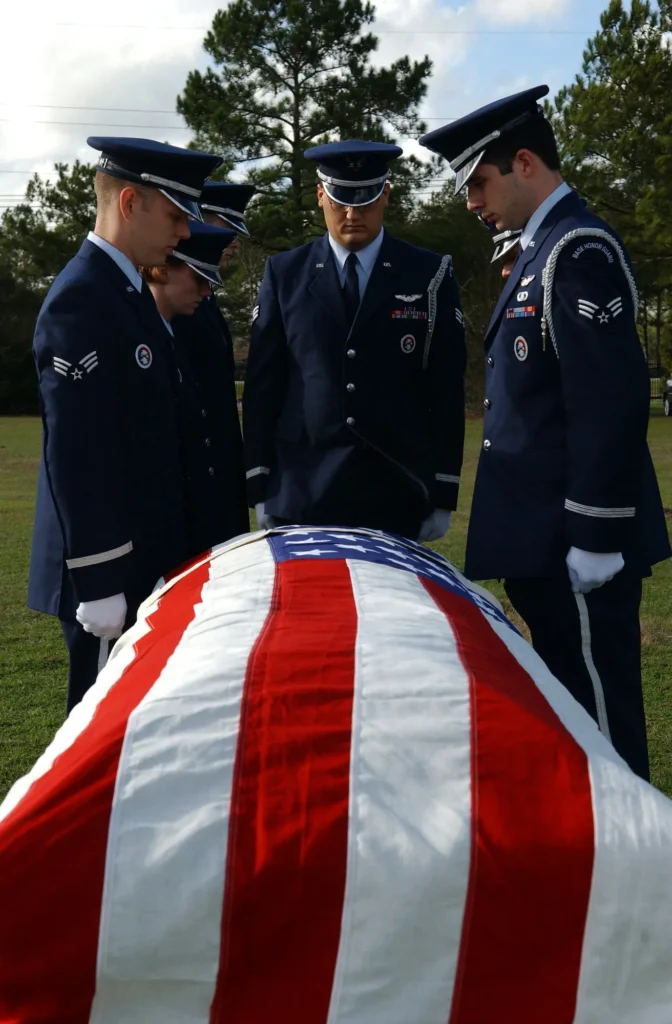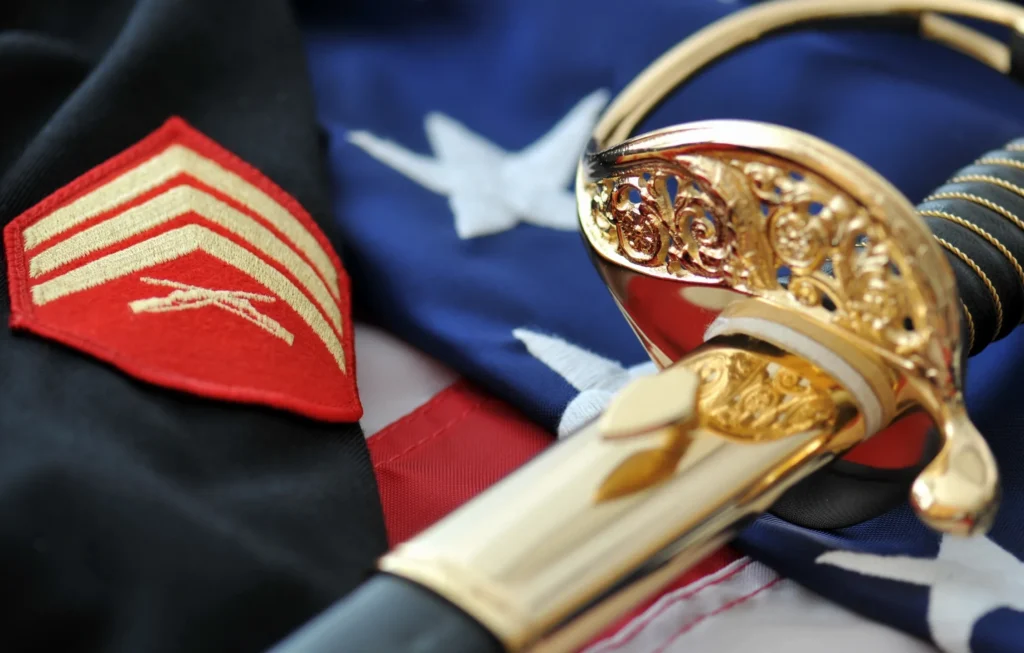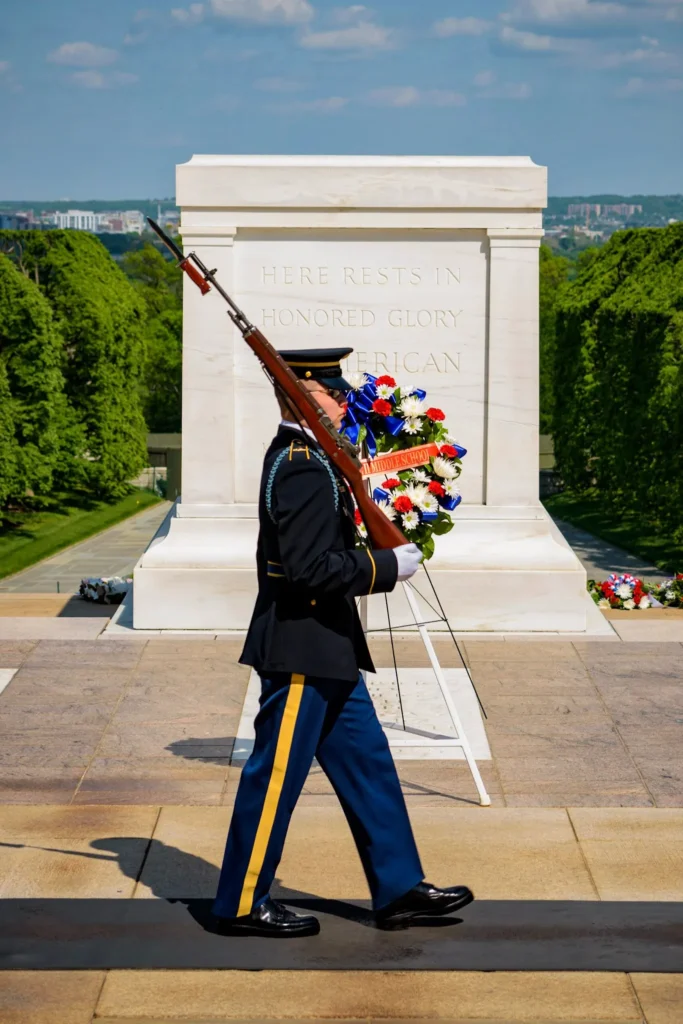Family Guide to Military Tragedy
NOTIFICATION PHASE

What is a CASUALTY Affairs Contact Officer (CACO)?
A CACO officer is assigned by the Department of Defense to assist the families of ill, injured, or deceased members.
- Army — Casualty Assistance Officer
- Marine Corps — Casualty Assistance Calls Officer
- Navy — Casualty Assistance Calls Officer
- Air Force — Casualty Assistance Representative
- Coast Guard — Casualty Assistance Calls Officer
Once a CASUALTY Affairs Contact Officer (CACO) contacts you or your family:
Designate a trusted family member or friend as an advocate and have them gather as much information as possible. We suggest purchasing a digital recorder to record conversations. Ask for permission to record if you’re in a two party consent state.
Have your advocate collect:
- Business Cards
- Physician Name(s)
- Treatment Notes
- Military Personnel (Name, Rank, Unit)
- Phone Numbers
- Timelines
- Medical Records (If at a Civilian Hospital)
IF YOUR LOVED ONE PASSES AWAY:
Demand a civilian autopsy, genetic testing, and pathology. During the autopsy. The medical examiner will take photographs, document any trauma, disease, or unusual physical characteristics. Samples of fluids and tissues will be obtained for microscopic, toxicological and genetic testing.
UNDERSTANDING YOUR RIGHTS AND DECISION MAKING

Know Your PADD Rights
(Person Authorized to Direct Disposition of a service member’s remains)
“This guide outlines your rights and the decisions you will make as the designated person authorized to direct disposition of remains for a service member who died while serving in an active-duty status.” – Military OneSource
As the PADD, you have the right to:
- Relinquish your PADD designation.
- Be notified in a timely manner of the service member’s death and receive updates.
- Be provided updates on recovery efforts when search and recovery operations are ongoing.
- Receive a briefing from a casualty assistance or mortuary affairs officer regarding preparation and transportation of remains, disposition options and military funeral honors.
- Request chaplain support.
- Select the funeral home of your choice.
- Direct how to prepare the remains. Do you want the remains embalmed or prepared without embalming? If you choose not to embalm, it may impact your ability to have a public viewing and may impact transportation options. Do you want the remains dressed in military uniform or in civilian attire?
- Select type of casket or urn (if applicable).
- View the remains.
- Direct final disposition, which may include in-ground burial, placement in a mausoleum, cremation, placement in a niche, scattering of the cremated remains, etc.
- Request a second autopsy. You may contract with a local civil authority or private pathologist to conduct an autopsy. All expenses pertaining to the second autopsy are a personal expense and not reimbursable by the Defense Department. It’s the responsibility of the person requesting the
autopsy to arrange the transportation of the remains to the place of the second autopsy,
including complying with all civil laws and obtaining all required transportation and burial permits.
For more information regarding DOD burial services and honors please follow this link to MilitaryOneSource.
Questions? You can ask your military funeral honors coordinator or call Military OneSource at 800-342-9647.

INVESTIGATIVE PHASE

Obtain Lead Investigator Contact information from Your CACO Officer
Navy & Marines: Naval Criminal Investigative Service (NCIS)
Air Force: Office of Special Investigations (AFOSI) Army: United States Army Criminal Investigation Command (USACIDC)
Inquire about Legal Counsel
Research potential lawyers. There are law firms that are experts in the Feres Doctrine and NDAA. These lawyers are specialists in military malpractice and negligence.
Be cautious regarding media requests
Ask your family, trusted friends, or lawyer (if retained) their advice if you are contacted by the media.
Save and organize all documentation
You will begin to receive letters from elected officials and other official correspondence. To save time and reduce headaches, put them in chronological order and place in a safe spot.
Wait for official investigation findings
The investigation typically takes several months. When reading through, there might be terms (military, medical, etc.) you are unfamiliar with. Ask friends in law enforcement, ex-military, or with a medical background to help or answer any questions.

REQUEST ADDITIONAL DOCUMENTATION with the Freedom of information act (FIOA)
Now that you have a clear timeline of events and have the official investigative report, now is the time to dig deeper by requesting Government documents with the Freedom of Information Act (FOIA).
FOIA additional information and tips for success
You can request as many FIOA documents as you would like. By law, each request is permitted 2 hours of research and the first 200 pages are free. Additional paid hours of research are available.
BY LAW: The FOIA request should be completed within 20 days. Occasionally. some requests might take up to 30 days – if so, follow up.
Additional Tips:
- Check to see if the information you’re requesting is already available on the internet. Search across the government websites for information.
- Identify the correct agency for your request. There are many departments and each is responsible for handling its own FOIA requests. If you are unsure, click here to search for the correct agency.
- When submitting your FOIA requests, make them as specific and narrow in scope as possible. For example, Request dates and specific things like emails/medical records/chain of command.

